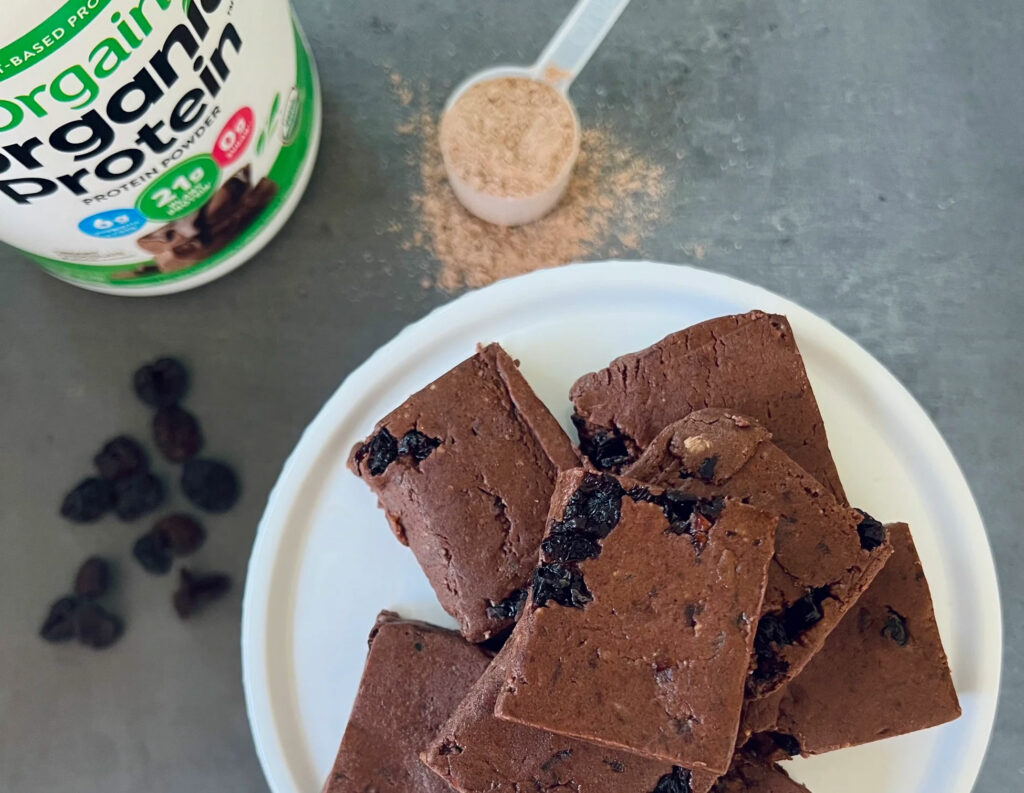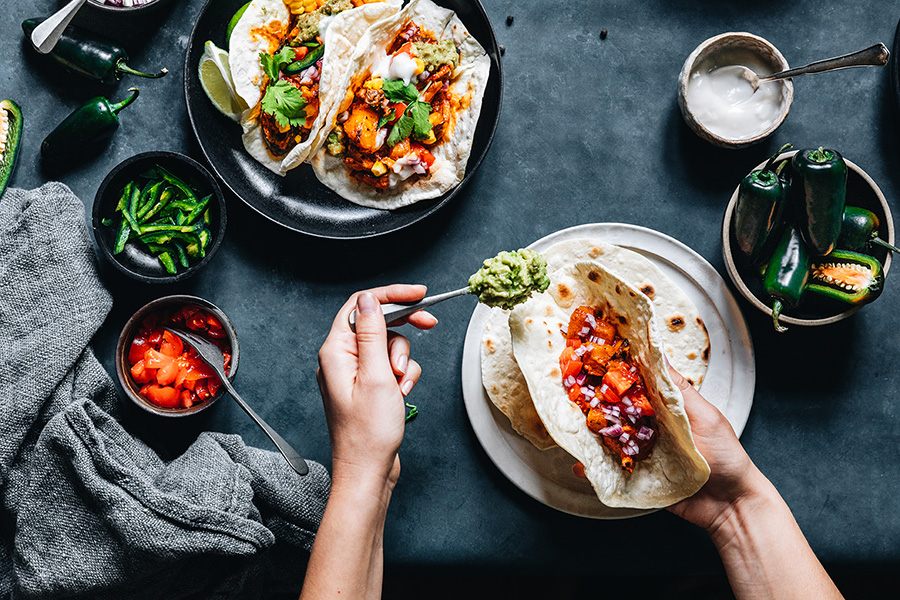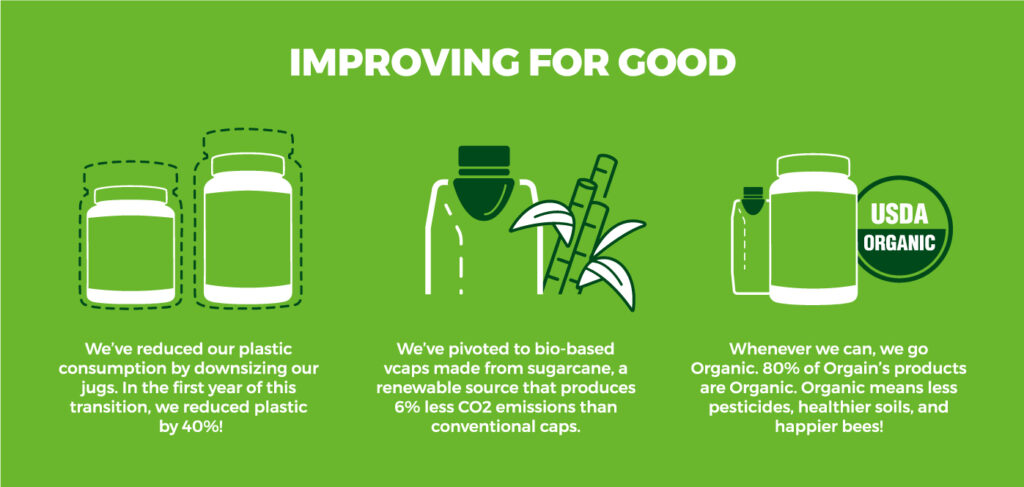Today’s food system is sophisticated enough to generate many foods that support health worldwide. However, food production can put enormous strain on the environment while, at the same time, the food supply is threatened by climate change.1
Practicing food sustainability is central to preserving a healthy planet, yet nutrition educators report barriers in educating their clients about ways to practice food sustainability due to lack of tools, knowledge, and resources.2
Food + Planet collaborated with Today’s Dietitian to survey over 1100 registered dietitians (RDs) in the 2023 Sustainability and Food Insights Survey. While most RDs agree that sustainability is crucial, most don’t feel equipped to incorporate food sustainability practices with clients.2
Millions of people worldwide are undernourished, while excess consumption of food leads to massive food waste and increasing rates of nutrition-related chronic diseases.3 Fortunately, healthcare professionals (HCPs) are well positioned to share strategies with patients for making changes that benefit their health and the planet.3
Sustainable Food Systems Defined
At the core of sustainable food systems is the integration of human health with the natural ecosystem of food production.1 Evidence shows that doubling the consumption of fruits, vegetables, legumes, and nuts while limiting the consumption of foods with added sugars and red meat will improve human health. These same habits paired with reducing food loss, food waste, and improvements in agricultural practices and food production will also benefit the health of the planet.1,4
Current State of Agricultural Practices
Conventional agricultural practices lead to the degradation of food systems. Livestock and land use contribute to methane and nitrous oxide emissions, two agricultural practices leading to greenhouse gas emissions (GHGE).5
The December 2023 United Nations COP28 Climate Summit set out to pave the way to preserve a livable climate. Changes in farming practices and GHGE are needed to accomplish the goal to limit a global temperature increase to 1.5° Celsius above preindustrial levels.6,7 Current farming practices contribute around one third of GHGE, with raising and producing livestock contributing an estimated 54% of total agriculture emissions.6,7,8 The duration of GHGE in the atmosphere varies depending on the type of gas, ranging from a few years to thousands of years.5
Conventional farming practices also use about 40% of land suitable for growing crops and 70% of freshwater resources.8 The competition for land and water use will only worsen as the world’s population and food production needs grow.3
Acquiring and producing seafood as well as expansion of the industry to meet demand is linked to many environmental concerns. Overfishing without consideration of the maintenance of the fish species, unintentional capture of non-target marine life (bycatching), loss of aquatic habitats, and water pollution have the potential to disrupt the aquatic ecosystem.4
The Impact of Foods on the Environment
While the food system is vulnerable to climate change, food production is contributing to the destruction of the planet.1 The food we produce, acquire, distribute, eat, and throw away has massive impacts on environmental decline, climate changes, and health.3,4 Global demand for animal-based foods is on the rise, which threatens to further boost GHGE from 30-80% by 2050.3
Ultra-processed foods are a big culprit in agrobiodiversity loss. These foods use a handful of high-yield plants such as wheat, maize, soy, and oil-seed crops as well as animals fed these same crops. The production of ultra-processed foods impairs biodiversity, and the wide availability of these foods can exclude fresh and unprocessed foods from the diet, increasing the global burden of obesity and diabetes.1,9
Meanwhile, all plants but especially dry peas, beans, lentils, and chickpeas, the edible seeds of legumes known as pulses, are good for the environment. Pulses fix atmospheric nitrogen levels which helps to reduce the use of nitrogen fertilizer, improve soil phosphorus, and increase plant nutrient content. As a result, they mitigate GHGE and increase yields for other crops rotating on the soil as they also diminish pest cycles, conserve soil moisture, and improve soil health via microbial activity.10,11
Sustainable Food System Strategies in Practice
HCPs can help counter the negative effects of foods on the environment and health by guiding patients toward sustainable dietary habits.3
Eat less meat and more plants – HCPs can recommend limiting red meat, processed meats, and having small amounts of seafood and poultry.12 Mary Purdy, MS, RDN, integrative dietitian, notes that “HCPs can provide ideas for more plant-based proteins in place of meats whose production contributes close to 15% of the GHGE from our food system, tends to use more resources, and is responsible for the majority of deforestation and biodiversity loss.
This can be as simple as suggesting adding them to soups, stews, salads and smoothies, trying bean pastas, tofu stir fries, or asking them about any traditional dishes in their family or culture where legumes were the centerpiece.”
Practice food appreciation – Emerging research shows that expressing appreciation and gratitude for food can help improve dietary quality and reduce food waste.13 To help with this, HCPs can recommend that patients plan ahead for meals, take time to savor foods, and avoid distractions while eating.
Use more pulses – Pulses are an inexpensive, digestible source of protein and a vital source of essential amino acids.10 Pulses can be eaten in chilis, stews, and soups, but can also be added in new, creative ways such as over toast for a savory breakfast or tossed into salads and pasta. Purdy states, “in general, we are consuming more meat than is recommended in our health guidelines, and minimally processed plant-based options like beans and lentils, which offer additional nutrients like fiber and minerals that most are short on, can support metabolic health.”
Since most people consume too much sodium, HCP’s can recommend no-salt-added canned pulses. For regular canned pulses, to reduce sodium content, they can be rinsed in a colander for 10 seconds and allowed to drain for 2 minutes.14
Limit ultra-processed foods – “HCPs can encourage fewer ultra-processed and packaged foods, the consumption of which are associated with numerous chronic diseases and whose production tends to not only have a higher carbon footprint but is often associated with monocultures and growing practices that deplete soil and reduce biodiversity. Suggest replacing crunchy chips with nuts and seeds, candy or baked goods with fruit whenever accessible, and help patients find ways to get back to the kitchen and start cooking more of their own food if possible. Basic recipes or simply ’assembling meals’ can be a great starting point,” suggests Purdy.
Realistic food recommendations that reflect equity – For patients experiencing food and nutrition insecurity, HCPs can recommend dried and canned pulses, no-salt-added canned vegetables, canned pulses, canned fruit packed in water or juice, no-added-sugar dried fruit, plain frozen vegetables and fruit, whole wheat pasta and whole grain rice, and nuts, seeds, and olive oil.
Reduce food waste – HCPs can recommend freezing leftovers to eat later and arranging food in the refrigerator by expiration so that fresh items are used before they expire.
Purdy notes, “Americans waste close to 40% of the food we produce which contributes to around 8% of greenhouse gas emissions from the methane produced when food rots in landfills as well as from production processes of the food that never made its way into someone’s belly. Composting can be an effective option (if available) to keep food waste from entering the garbage, but so can helping patients get creative about meal planning, knowing what’s in the fridge, and finding innovative ways to incorporate that on-its-way-out carrot or how to use all components of certain vegetables (some peels and stalks can be part of stir fries or frittatas!) An added benefit is the extra money that is saved, which amounts to close to $1200 per year per family.”
Choose sustainable seafood – When choosing seafood at a restaurant, market, or grocery store, choose environmentally sustainable options by using the Seafood Watch consumer guide. Ask about the sustainability of seafood, which is shown to drive retailers to consider sustainability a priority.15
References:
- Guinto RR, Baluyot CJ, Gan CCR, Ghosh U, Mahadzir MDA. Health sector solutions for promoting sustainable and nutritious diets. BMJ. 2022 Sep 29;378:e071535. doi: 10.1136/bmj-2022-071535. PMID: 36175023; PMCID: PMC9518010.
- Food + Planet. Cultivating a Sustainability Revolution. Available at: https://foodandplanet.org/
- Alberdi G, Begiristain-Zubillaga M. The Promotion of Sustainable Diets in the Healthcare System and Implications for Health Professionals: A Scoping Review. Nutrients. 2021 Feb 26;13(3):747. doi: 10.3390/nu13030747. PMID: 33652687; PMCID: PMC7996772.
- Bastian GE, Buro D, Palmer-Keenan DM. Recommendations for Integrating Evidence-Based, Sustainable Diet Information into Nutrition Education. Nutrients. 2021; 13(11):4170. https://doi.org/10.3390/nu13114170
- United States Environmental Protection Agency. Overview of Greenhouse Gases. Available at: https://www.epa.gov/ghgemissions/overview-greenhouse-gases
- United Nations. Climate Action. COP28. Available at: https://www.un.org/climatechange/cop28
- Costa, C., Wollenberg, E., Benitez, M. et al. Roadmap for achieving net-zero emissions in global food systems by 2050. Sci Rep 12, 15064 (2022). https://doi.org/10.1038/s41598-022-18601-1
- Fanzo J, Rudie C, Sigman I, Grinspoon S, Benton TG, Brown ME, Covic N, Fitch K, Golden CD, Grace D, Hivert MF, Huybers P, Jaacks LM, Masters WA, Nisbett N, Richardson RA, Singleton CR, Webb P, Willett WC. Sustainable food systems and nutrition in the 21st century: a report from the 22nd annual Harvard Nutrition Obesity Symposium. Am J Clin Nutr. 2022 Jan 11;115(1):18-33. doi: 10.1093/ajcn/nqab315. PMID: 34523669; PMCID: PMC8755053.
- Leite FHM, Khandpur N, Andrade GC, Anastasiou K, Baker P, Lawrence M, Monteiro CA. Ultra-processed foods should be central to global food systems dialogue and action on biodiversity. BMJ Glob Health. 2022 Mar;7(3):e008269. doi: 10.1136/bmjgh-2021-008269. PMID: 35346976; PMCID: PMC8895941.
- Thavarajah D, Lawrence T, Boatwright L, Windsor N, Johnson N, Kay J, Shipe E, Kumar S, Thavarajah P. Organic dry pea (Pisum sativum L.): A sustainable alternative pulse-based protein for human health. PLoS One. 2023 Apr 12;18(4):e0284380. doi: 10.1371/journal.pone.0284380. PMID: 37043476; PMCID: PMC10096185.
- Mahmud K, Makaju S, Ibrahim R, Missaoui A. Current Progress in Nitrogen Fixing Plants and Microbiome Research. Plants (Basel). 2020 Jan 13;9(1):97. doi: 10.3390/plants9010097. PMID: 31940996; PMCID: PMC7020401.
- Willett W, Rockström J, Loken B, et al. Food in the Anthropocene: the EAT-Lancet Commission on healthy diets from sustainable food systems. Lancet (London, England). 2019 Feb;393(10170):447-492. DOI: 10.1016/s0140-6736(18)31788-4. PMID: 30660336.
- Cosgrove K, Wharton C. Food Appreciation Scale Development and Dimensionality Assessment. Int J Environ Res Public Health. 2023 Jul 12;20(14):6345. doi: 10.3390/ijerph20146345. PMID: 37510577; PMCID: PMC10378760.
- Duyff RL. Mount JR. Jones JB. Sodium reduction in canned beans after draining and rinsing. Journal of Culinary Science and Technology 2011; 9(2):106-112. DOI: 10.1080/15428052.2011.582405
- Monterey Bay Aquarium. Sustainable seafood. Available at: https://www.montereybayaquarium.org/act-for-the-ocean/sustainable-seafood

As we step into the New Year, promoting overall well-being remains a top priority. Encouraging healthy habits doesn’t mean sacrificing the joy of indulging in delicious treats. This New Year, we’re excited to share some scrumptious and health-conscious dessert ideas that you and your patients can savor and enjoy! Healthcare ambassadors – remember to use your exclusive discount code to purchase the Orgain products in these recipes!
- Single Serving Protein Carrot Cake
- No Bake Protein Jam Bars
- Chocolate Cherry Protein Bars
- Key Lime Sandwich Cookies

Register now for our upcoming webinar on January 18, 2024, at 2:00 pm EST, Beyond Impossible: The What, Why, and How of Implementing Plant-Centric Meals with Mary Purdy, MS, RDN
Plant-centric meal patterns are a current hot topic, not only as it relates to nutritional guidance, but also as a trending theme in the food and restaurant industries. As recommendations and demand for plant-centric meals increase, practitioners need to understand how to optimize intake, broaden diversity, and discern the nutritional quality of different sources. This presentation will showcase how plants and many plant-based proteins can be food as medicine for disease prevention and offer a nutrient-dense option with a lighter environmental footprint. It will also explore the pros and cons of alternative proteins, and meat analogues and provide creative and culturally relevant strategies for incorporating these nutritional gems into everyday menus.
The Orgain Healthcare Professional Education Webinar Series can be easily accessed on the Orgain Healthcare App. Attend either live or on-demand! All the webinars in this series are available for 1.0 CPEU for RDNs and NDTRs. Learn More
Coming soon in 2024!
- February – Sugar vs. Sugar Alternatives: Impacts on Brain Health, Obesity, and Addiction with Nicole Avena, PhD
- March – Kidneys and Kale: Preventative kidney care with plants with AnneMarie Rodriguez, RDN, LD, FAND.
- April – Protein Deep Dive for Athletes, Active Individuals and the Aging Population with Kelly Jones, MS, RD, CSSD

Orgain has an ongoing commitment to the environment, which includes sourcing high-quality planet-friendly ingredients, with many products being USDA certified organic and featuring grass-fed milk protein, sourced from cows from New Zealand. New Zealand cows are raised under strict animal welfare regulations by the New Zealand government that are equivalent, if not more stringent, than regulations set forth by the National Organic Program administered by the FDA.
In addition, Orgain’s Green Initiative, launched in 2020, is an effort which led to the reduction in product packaging to reduce plastic use, while providing the same amount of product. For more information, visit Orgain’s Green Initiative. Orgain also provides ongoing educational opportunities that includes topics related to environmental health and nutrition through its various communication channels including free professional education webinars such as Eating Like the World Depends on It (Because It Does…), presented by Dr. David Katz, and episodes on The Good Clean Nutrition Podcast.
Professional Education Webinar Series
Sustainability & Eating – The Connection to Our Environment & Role of Healthcare Practitioners (Released: 5/19/22)
Eating Like the World Depends On It (because it does…) (Released: 9/9/21)
First Do No Harm: What Health Care Providers Need to Know about Organic Food and Agriculture (Released: 12/9/20)
The Good Clean Nutrition Podcast
Beyond Mac & Cheese: Plant-Based Eating for Kids with Dr. Yami Cazorla-Lancaster, DO, MPH, MA, FAAP (Released: 10/10/23)
Reduce Your Household Food Waste with Dana Gunders (Released: 4/4/24)
The Environment and Human Health Connection with Rupa Marya, MD (Released: 12/13/22)
Plant-Based Eating: Overcoming Challenges to Accessibility with Common and Dr. Andrew Abraham (Released: 9/19/22)
Nutrition Crossroads: Food, Health, and Sustainability with Kate Geagan, MS, RD (Released: 4/12/22)
Science-Based Brief
Investing in the Planet Through Budget-Friendly Dietary Practices (Published: 4/11/23)
Reduce, Reuse & Upcycle: Sustainable Practices for Environmental & Human Health (Published: 12/5/22)
Planet Friendly Eating & The Role of Healthcare Professionals (Published: 1/18/22)



